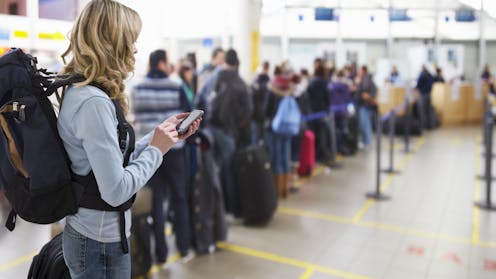A looming workforce crisis in NZ tourism and hospitality threatens industry growth plans
- Written by The Conversation

Last week’s big tourism conference in Rotorua saw plenty of optimism about the industry’s potential, but also warnings that airline capacity is hampering post-COVID growth.
The focus on bringing more foreign tourists to New Zealand is understandable, given the sector accounts for 7.5% of GDP and is our second highest export earner. But there is deeper problem, too. We already struggle to serve current visitor numbers – how will we handle more?
International tourism injected NZ$16.9 billion into the economy in the year to March 2024. Total tourism expenditure (domestic and international) hit a record $44.4 billion, up nearly 15% from the previous year.
The government has responded with a $13.5 million global marketing boost, and business leaders are celebrating. The big question is whether we will have the workforce to match the ambition.
Because right now, the pipeline of skilled, engaged people willing to work, grow and lead in tourism and hospitality isn’t flowing.
Without an industry-led, well-funded campaign to rebuild the perception of tourism and hospitality as credible, rewarding and sustainable career options, New Zealand has a crisis in the making.
Who wants to work in tourism and hospo?
Fewer New Zealanders are choosing tourism and hospitality as a career. With the number of locals studying tourism and hospitality collapsing, both sectors are increasingly dependent on foreign workers.
Tourism education numbers for the past decade show:
1,355 equivalent full-time students were enrolled in tourism-related courses in 2024, down from 3,750 in 2015 – a 63% drop
enrolments in bachelor’s degrees in tourism management fell from 45 in 2015 to 25 in 2024 – a 44% drop
postgraduate enrolments in tourism management are down 75%, with only 20 in 2024.
The figures for hospitality education paint an even grimmer picture:
enrolments in hospitality courses fell from from 915 in 2015 to just 250 in 2024 – a 73% drop
cookery course enrolments fell from 4,125 to 1,140 – a 72% drop
food and beverage service training fell from 1,445 in 2015 to just 340 in 2024 – a 76% drop
hospitality management degree enrolments fell from 380 in 2015 to 210 in 2024 – a 45% drop.
These figures do not include actual workplace training, but they still illustrate a clear trend.
The looming workforce shortage
Minister of Tourism and Hospitality Louise Upston recently said, “We need to grow tourism businesses. We need to grow the value from the tourism visitors we have.” She’s right. But without a viable workforce, none of this is possible.
As to why more New Zealanders aren’t keen to work in the sector, Upston said, “I just don’t think the sector’s promoted it well enough.” This is despite many years of industry exhortations to “grow the domestic workforce”, “attract more young people” and “build career pathways”.
COVID-19 certainly hurt the industry’s image as a place to work. But the challenges around neglected workforce development, career promotion and long-term planning predate the pandemic.
Other industries and professions – including construction, agriculture and accounting – have invested heavily in scholarships, internships, mentoring and reputation building. Tourism and hospitality haven’t matched this and now risk losing young people to global demand.
If the pattern continues, there will be a national shortage of qualified staff and competent managers, and greater reliance on short-term and migrant labour. That leads in turn to overworked staff, poorer service, and businesses forced to reduce hours or close altogether.
Investment in the future
In the 1970s and 80s, New Zealand had to import tourism and hospitality talent to grow the industries. Without real change, those days may return.
Apart from what is offered by two major hotel chains, few formal internships exist. Such programmes are not simply part-time jobs, they’re investments in future talent, involving professional guidance and meaningful experience. They take effort, but they work.
Meanwhile, degree-level programmes are already being dropped. If lower-level course enrolments continue to fall, these programmes may close too. The burden then falls on businesses to train and educate staff. But those same businesses say they can’t find enough staff today.
This is more than a workforce problem, it’s a national economic risk. Spending millions on attracting visitors only to deliver a substandard experience is not a good use of taxpayer money.
Without people, there is no hospitality. Without hospitality, there is no tourism. And without a sustainable tourism industry, New Zealand’s economy will suffer.







